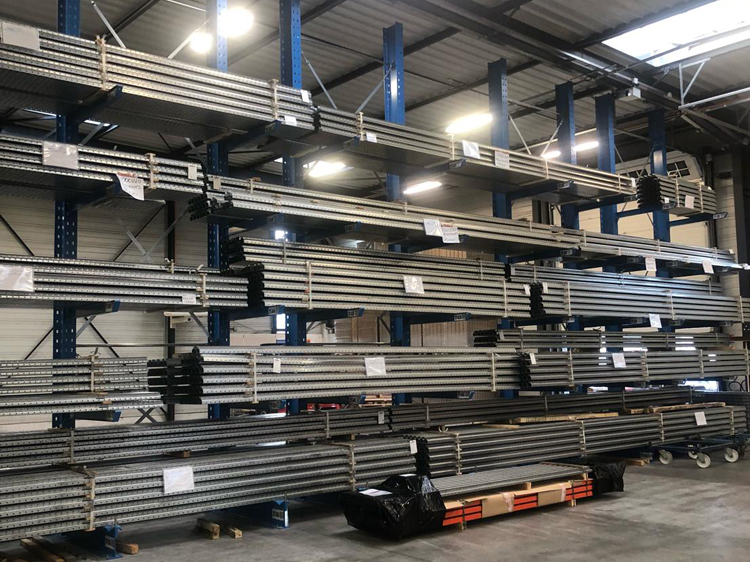Things to note when laying out cantilever racks for aluminum
What should we pay attention to when laying out cantilever racks for aluminums?
1. Flat ground:
Since the three-way forklift used for cantilever racks for aluminums is lifted to a high altitude together with the operating room, if the ends of the wheels are uneven, it will bring risks to the operation. If the ground height of the two wheels is 5mm, then the fork rises high and tilts to one side to 50rm. If two pieces of goods are not stacked neatly, if they meet the goods. This coupled with the fact that a stacker crane can move within 20 kilometers makes it even riskier.
2. Ground subsidence:
Because the foundation is soft, it will cause natural subsidence in one or several years, and will also cause the ground to be uneven. In addition, there is a support block at the bottom of the narrow road forklift. In order to ensure that the forklift does not tip over, there is a gap of about 15mm between this support block and the ground. If the ground is uneven, it will rub against the ground.
In fact, cantilever racks for aluminums have such high requirements on the ground, mainly because of the characteristics of the racks themselves and the decision to use cantilever racks for aluminums. Therefore, in order to ensure the safety of customers, the planning of cantilever racks for aluminum must first be considered Ground issues, so as to ensure the safety of people and goods.
